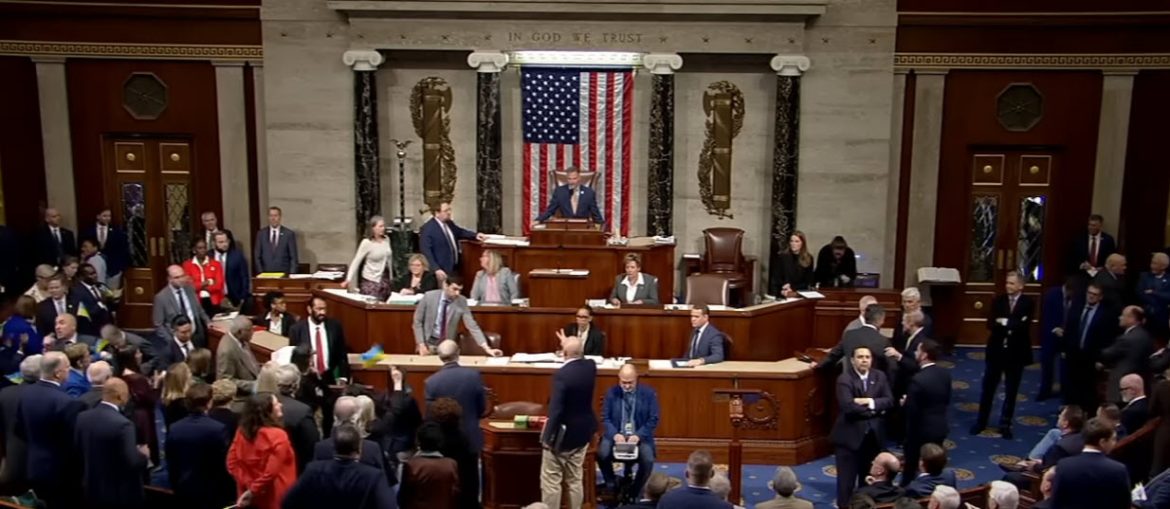As the House successfully passed a $95 billion aid package targeting Ukraine, Israel, and Taiwan, tensions within the Republican ranks threaten Speaker Mike Johnson’s position. Hardline conservatives have voiced intentions to initiate a process to remove Johnson from his role, citing disagreements over the aid package and broader policy stances. However, bipartisan support has emerged to maintain Johnson’s leadership, emphasizing unity and stability within the party.
The focus now shifts to the Senate, where the aid package is set for approval this week. Senate leaders are pushing for swift passage of the legislation, which includes substantial aid allocations for Ukraine, totaling over $60 billion, and $26 billion for Israel. Additionally, the package features measures aimed at TikTok’s parent company ByteDance, mandating divestment or facing a U.S. ban due to national security concerns. Initial votes on the package are scheduled for early Tuesday afternoon.
Marjorie Taylor Greene, a Republican Congresswoman from Georgia, has been a controversial figure known for her provocative statements and actions that often spark chaos and confusion within political circles. Her vocal support for conspiracy theories and fringe ideas, along with her confrontational style, has frequently drawn criticism from both Democrats and Republicans. Greene’s presence in Congress has become a focal point of debates on political rhetoric, ethics, and the boundaries of acceptable behavior for elected officials, contributing to a charged and polarized atmosphere in Washington.
Ukrainian President Volodymyr Zelensky has lauded the bill’s progress, highlighting the significant aid for Ukraine as a symbol of U.S. commitment to defending democracy worldwide. In an interview with NBC’s Meet The Press, Zelensky expressed gratitude for the leadership and strength demonstrated by the aid package.
The foreign aid bill also garners support from key senators like Ted Cruz, who appreciates provisions addressing TikTok’s ownership and aid to Israel. Cruz emphasizes bipartisan concerns about TikTok’s ties to the Chinese Communist Party, reflecting broader national security considerations.
Amid these developments, discussions within the Republican Party reflect a broader debate on policy priorities and party unity, with Speaker Johnson’s position caught in the crossfire of differing ideological stances.



